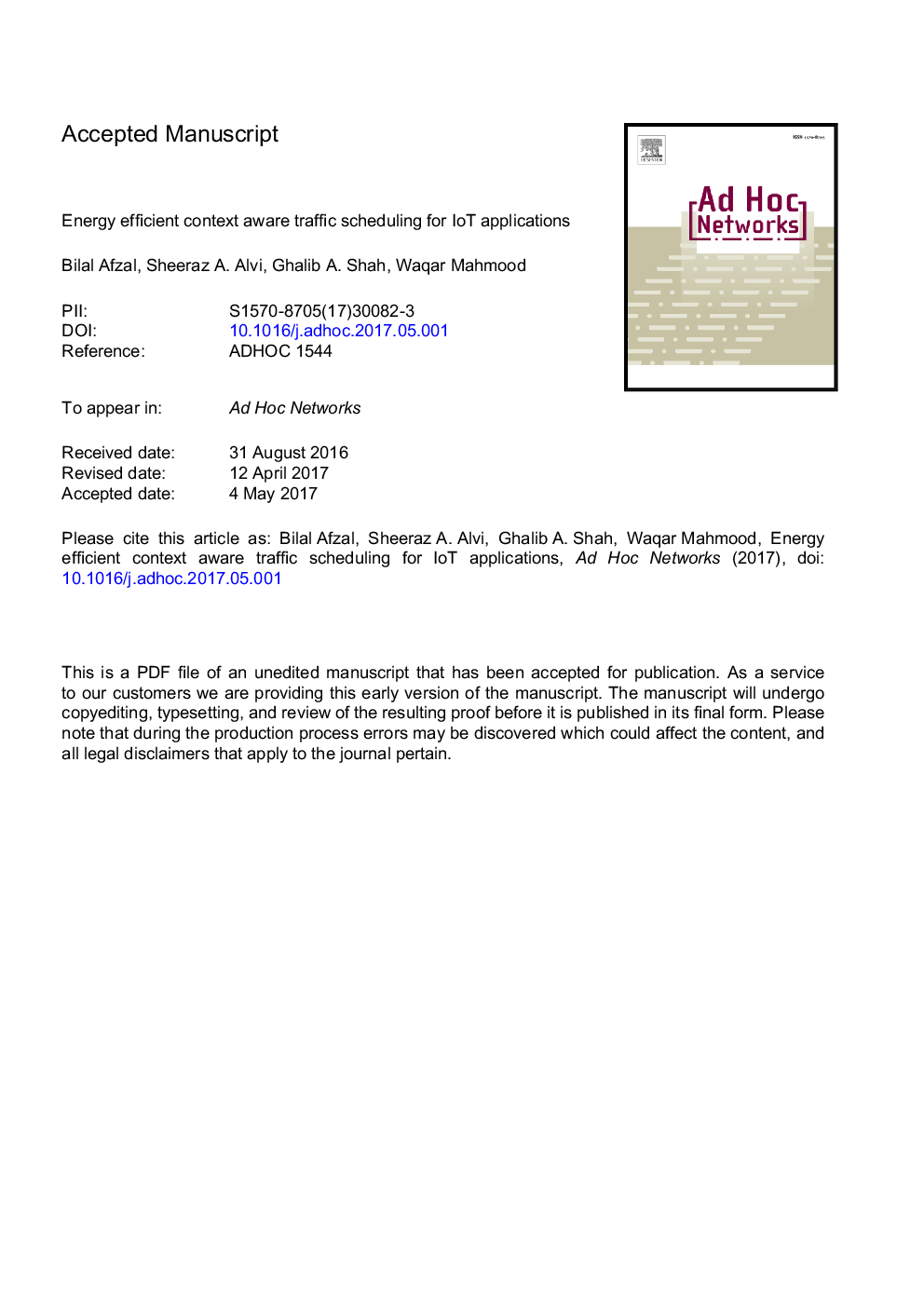| Article ID | Journal | Published Year | Pages | File Type |
|---|---|---|---|---|
| 4953557 | Ad Hoc Networks | 2017 | 44 Pages |
Abstract
The evolution of Internet of Things (IoT) has increased the appetite for the energy efficient wireless infrastructures. Most of the IoT devices are inherently resource constrained and heterogeneous in respect of their traffic demand. Moreover, these devices need to be made adaptable to the varying environmental conditions. However, existing traffic scheduling and duty cycling algorithms lack the capability to meet the dynamic service quality requirements of IoT applications with variable context information. Specifically, they are infeasible for IoT use-cases where multi-hop communication is required. This paper strives to realize efficient resource allocation to the Wi-Fi based IoT devices in multi-hop IoT infrastructures. Firstly, IoT applications are characterized as per their heterogeneous traffic demand and mapped to the distinct weighted quality classes. Then, context awareness is introduced for IoT devices and an optimization model constrained by their service quality requirements and context priorities is presented. Further, an energy efficient context aware traffic scheduling (EE-CATS) algorithm is proposed wherein the convergence of model is specified by a sub-gradient projection method. The EE-CATS algorithm efficiently allocates resources to multi-hop IoT devices and reduce their total awake time by employing adaptive duty cycling. The performance evaluation is done for various IoT use-cases through simulations in Network Simulator (ns-2) and testbed implementation in Contiki operating system. The results suggest substantial improvements in the energy efficiency of IoT devices while ensuring their dynamic service requirements. In addition, the proposed algorithm minimizes the end-to-end delays in overall IoT networks.
Keywords
Related Topics
Physical Sciences and Engineering
Computer Science
Computer Networks and Communications
Authors
Bilal Afzal, Sheeraz A. Alvi, Ghalib A. Shah, Waqar Mahmood,
